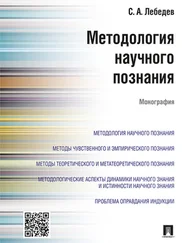Сергей Лебедев - Untraceable
Здесь есть возможность читать онлайн «Сергей Лебедев - Untraceable» весь текст электронной книги совершенно бесплатно (целиком полную версию без сокращений). В некоторых случаях можно слушать аудио, скачать через торрент в формате fb2 и присутствует краткое содержание. Город: New York, Год выпуска: 2021, ISBN: 2021, Издательство: New Vessel Press, Жанр: Современная проза, на английском языке. Описание произведения, (предисловие) а так же отзывы посетителей доступны на портале библиотеки ЛибКат.
- Название:Untraceable
- Автор:
- Издательство:New Vessel Press
- Жанр:
- Год:2021
- Город:New York
- ISBN:978-1-939931-90-0
- Рейтинг книги:3 / 5. Голосов: 1
-
Избранное:Добавить в избранное
- Отзывы:
-
Ваша оценка:
- 60
- 1
- 2
- 3
- 4
- 5
Untraceable: краткое содержание, описание и аннотация
Предлагаем к чтению аннотацию, описание, краткое содержание или предисловие (зависит от того, что написал сам автор книги «Untraceable»). Если вы не нашли необходимую информацию о книге — напишите в комментариях, мы постараемся отыскать её.
Untraceable — читать онлайн бесплатно полную книгу (весь текст) целиком
Ниже представлен текст книги, разбитый по страницам. Система сохранения места последней прочитанной страницы, позволяет с удобством читать онлайн бесплатно книгу «Untraceable», без необходимости каждый раз заново искать на чём Вы остановились. Поставьте закладку, и сможете в любой момент перейти на страницу, на которой закончили чтение.
Интервал:
Закладка:
Kazarnovsky was buried in a sealed lead coffin. Kalitin even made a speech. After all, he had been a fairly good scientist.
After that death, everything went haywire. A fire in the lab held up research for at least a year. Problems with delivery of lab mice—Lord, they couldn’t find mice in the country! Vera’s death.
Yes, Vera’s death—Kalitin played the list of obligatory memorial phrases through his head, a shorthand transcript of the grief he never felt.
He would have forgotten his unloved wife long ago. Erased the circumstances of her death from his memory. But he couldn’t. Her death was forever linked to the main moment of his life—the creation of Neophyte. As if Vera had paid his debt with her life.
CHAPTER 14
I wonder if the subject knew his wife was an informer, thought Shershnev.
He was with Grebenyuk in a beer hall, eating pig knuckles with sauerkraut. They had two steins each: the beer was light and begged to be drunk. It would be bliss to down five or six, but they had to drive tomorrow.
If he were alone, Shershnev would have done it. What could happen to him? It was a good place, even if it was for tourists; no overcharging or crowds. Grebenyuk would have drunk that much for sure. But they were together, and each had to write a report about the other’s behavior. Shershnev felt that if he had suggested it, Grebenyuk would support him. He was a regular guy and would not do him dirt later. But sometimes it doesn’t work out, something is not quite right. So you just sit there fondling your glass.
I’ll bet he didn’t guess, Shershnev continued thinking. That was a pleasant thought. It put the subject in his place; it aroused the lieutenant colonel’s vanity in a petty, tipsy way. They set the dope up with a pleasant lab assistant, clever and loose, and he fell for it. The lab assistant had been working for the security apparatus since college.
What worried, even upset Shershnev, was that he couldn’t decide whether her reports could be trusted. Formally—yes. She wrote frankly and did not protect her husband. She could have softened a few things. Even so, decades later, from a different time, Shershnev thought he was reading a diligently edited, clean copy, not lying but omitting. As if Vera, whose agent name was Housewife, had decided: it was better for her to have this vacancy than someone else who could really harm him. She pulled a fast one. In some sense, she sacrificed herself. Did she actually love her husband? Or does it just seem that way?
That impression pained Shershnev. He believed in the service’s ability to tame, break, see through anyone. To get to the unconditional truth by force, if necessary. And here he came upon someone’s faulty work long ago, the laziness or stupidity of the man who ran Housewife.
They left the beer hall. The lane led to the square.
Grilled sausage stands—delicious! Pushers huddled on the corner. A police car drove by. It was the peak of the evening, people had eaten and were headed for the bars.
“He did it here somewhere,” Grebenyuk said, looking around. “When our tanks came in. Poured gasoline over himself and lit it. They called it a protest against the Soviet invasion. I keep thinking, why? Tanks don’t care. At least throw a grenade… I read about it on the train,” he explained, seeing Shershnev’s confusion. “He’s a national hero now. Let’s go get some girls?” Grebenyuk asked without a pause, without transition.
“I’m not in the mood,” Shershnev replied. He really wasn’t.
Grebenyuk nodded, even though he must have thought that the lieutenant colonel would also go out seeking entertainment, but preferred doing it alone.
Shershnev grimaced inside: good thing he didn’t mention it over dinner. A discovery. Grebenyuk was a technician, they were trained differently. That incident was used as an example at their service school: a provocative act done under the influence of enemy propaganda. There was another such incident in Lithuania. In Kaunas. Amazing, he even remembered the formulation. The teacher explained that self-immolation, even if it seems unintentional, accidental, has to be investigated thoroughly, searching for the subjective.
Odd, Shershnev had forgotten completely that it had taken place here.
Grebenyuk, assured that his boss did not mind, turned behind a kiosk and immediately vanished among the passersby. Shershnev continued walking. He wanted to end this unnecessary, intervening day as fast as possible; in the morning they would rent a car, and everything would happen tomorrow.
Tomorrow.
He went into a store that was open late. He glanced at the windows, picked out a jacket, went into the dressing room, and then abruptly pulled back the curtain. No one.
He was sure they weren’t being followed anyway. They were clean. But he still felt a weak, strange tension that increased with Grebenyuk’s departure, a whisper of danger. Why did that idiot bring up the suicide? A bad sign. The devil made him do it.
He went back outside. Two tramps fighting by the garbage. Shershnev went around them in disgust—and suddenly grew wary, pulled himself together, without knowing why.
A woman.
A woman up ahead. By the ice-cream stand.
Shershnev saw her from the back.
Danger.
Danger emanated from her body, alien here where elderly people were usually trim, thin, and if they were fat, it was the amiable heaviness of gluttony.
A heavy but powerful body. You can move it or go around it; she will stand there, forcing you to notice her.
If ten of these women gather, a communal force develops the likes of which he did not perceive in women of his homeland. In Russian women he knew the power of humiliation, grief, prayer. But these mountain women had the power of impersonal unity, fearlessness born of disdain, a power that bewilders armed men. Not the hysterical-hypnotic power of gypsies, but that of witches, of ravens. Their everyday black dresses, heavy floor-length skirts, granny sweaters with peeling buttons, black or gray vests, woolen scarves. One breed, for him, a foreigner—one face, one voice capable of an unbearable screech that cuts like a saw; a scream with emotion, without relation to words; a pure sound against which there is no immunity. That scream can force a cordon of men behind metal shields to retreat, can turn soldiers into boys.
Shershnev imagined he heard that scream.
Like that morning after the night spent interrogating the boy in the shipping container on the base in Chechnya, having eaten and washed off in the icy field shower the sour stench of another’s fear and the work of torture. As they left the base, they saw relatives waiting at the gate, most often women like that, rushing up to each vehicle, ready to lie down under a truck, just to learn the truth, to get back a man dead or alive.
Shershnev knew that there was a large diaspora here, many political refugees. But just here and now—the woman should not have been here. Shershnev was not afraid, he did not panic, but he sensed he was being sucked down into a vortex. A woman, just a woman, an ordinary refugee, there were thousands of them here. Pure statistics. Then why the feeling that this was a mean trick, someone’s game, a setup from an unknown opponent?
The woman turned around and headed straight for him. Instant relief: no, he did not remember her face.
Then his heart skipped a beat.
The people sitting near the food cart had blocked the lower part of her body. He had thought she was using a walker. They were the handles of a wheelchair.
What Shershnev and Evstifeyev had done to the boy back then left him an adolescent forever. It was only in his face that there was the promise of proud male beauty. Shershnev recognized him. He would have recognized him if he had been wearing makeup, for he had spent a long night in the interrogation container waiting, looking for signs of weakness and emotional fissures in that face. His twin brother? A corpse? Was she wheeling a doll, a wax dummy? Had he lost his mind? It couldn’t be! The boy had died, he was dead!
Читать дальшеИнтервал:
Закладка:
Похожие книги на «Untraceable»
Представляем Вашему вниманию похожие книги на «Untraceable» списком для выбора. Мы отобрали схожую по названию и смыслу литературу в надежде предоставить читателям больше вариантов отыскать новые, интересные, ещё непрочитанные произведения.
Обсуждение, отзывы о книге «Untraceable» и просто собственные мнения читателей. Оставьте ваши комментарии, напишите, что Вы думаете о произведении, его смысле или главных героях. Укажите что конкретно понравилось, а что нет, и почему Вы так считаете.












